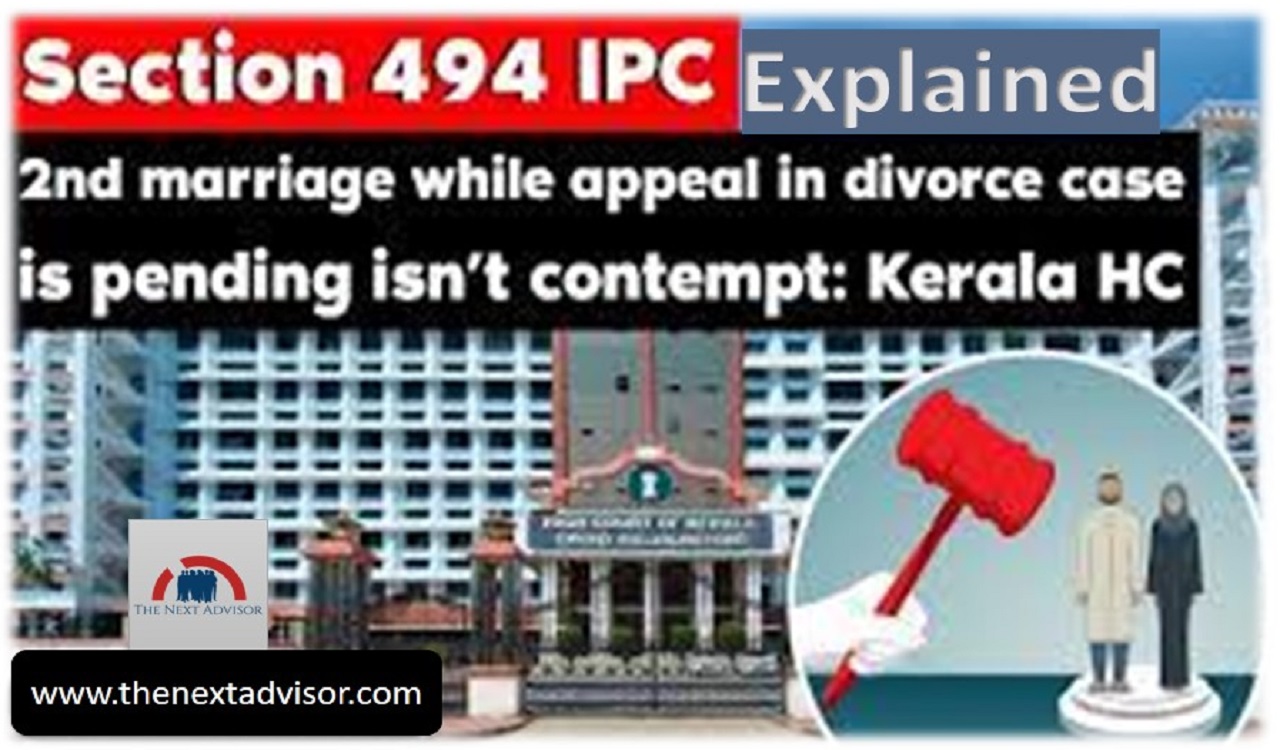Whether – “Section 494 IPC Explained”.
The second marriage’s whole Divorce decree was stayed, Appeal was dismissed later, which amounts to an offense under Section 494 IPC Explained.
Kerala High Court.
Manoj Vs State of Kerala and others –
The Kerala High Court has held that if a party enters into a second marriage when the appeal of the decree of divorce of the first marriage is still pending, he/she will not be guilty of the offense of bigamy under Section 494 of the Indian Penal Code if the appeal is subsequently dismissed.
Brief Facts –
At the instance of the first wife, cognizance was taken for the offenses under sections 494, 114 r/w Section 34 IPC in C.C.NO.2015.2013 of the JFCM, Chavakkad on the allegation that during the pendency of the appeal against the decree of divorce, her husband entered into a second marriage.
Ingredients of Section 494 IPC –
To constitute the offense under Section 494 IPC, it must be satisfied that –
1. The accused must have contracted the first marriage.
2. He must have married again.
3. The first marriage must be subsisting.
Section 15 Hindu Marriage Act –
It says that after the decree of dissolving the marriage, either there is no right to appeal against the decree, or if there is such a right, the time for appealing has expired without an appeal having been presented or an appeal has been presented but has been dismissed, it shall be lawful either of the party to the marriage to marry again.
Section 17 of the Hindu Marriage Act –
Section 17 of the Hindu Marriage Act, 1955 says that any marriage between two Hindus solemnized after the commencement of this Act is void if at the date of such marriage either party had a husband or wife living.
Analysis –
In the instant case, the second marriage was solemnized after the decree of divorce by the Family court, but during the pendency of an appeal and a stay order. But it is an admitted fact that the appeal ended in dismissal subsequently confirming the decree of divorce. Then the doctrine of merger would come into play and the decree of the Family Court will stand merged in the appellate decree. In other words, the decree of divorce confirmed in appeal would stand effective from the date of the original decree of divorce of the Family court and the appellate decree will revert to the date of the decree of divorce of the Family Court.
Decision –
It must be understood that once the appeal ended in dismissal confirming the decree of divorce of the Family Court, it would come under the third limb of Section 15 of the Act irrespective of the fact that the marriage was solemnized either before the presentation of appeal or before the culmination of appeal.

























